Dimensions: 272 cm x 355 cm in length Note the many botehs and the Stars of David tied in the border.
## Museum quality rug, exhibit type seen in Tehran Carpet Museum and other international museums.
Carpets knotted before the First World War generally have different motifs: trees, animals and figurative motifs.
The materials and the result were generally of very good quality. Although originating from the Iranian city of Kirman whose name these rugs bear, a large production region, no piece is more than one hundred and fifty years old today. In fact, carpet weaving only started in this region around 1880. ## The oldest dated piece found is from (1277) 1861, it is a 309 x 610 cm Kirman signed by the workshop "Hossein Kermani" present at the Tehran Carpet Museum.
Our model, although showing a slight general wear, is nonetheless a sublime artifact of Persian culture of the 19th century, under the Kadjar dynasty. ## The Kadjar dynasty or Kadjars: ( Qājār, Qadjar, Qajar, Persian: قاجار ) is a Turkmen dynasty which reigned over Iran from 1786 to 1925.
The Kirman is often decorated with flowers and most of the time has a medallion that stands out against a plain background.
The reputation of the Kirman rugs and the raver is due to the excellence of the "Ostads", these designers of cartoons of incredible skill who knew how to keep the sense of the tradition of these great Persian rugs of the XVI and XVIIth century.
The deep harmony of the colors results from a perfect dosage which testifies to the great creativity of the Kirman craftsmen.
The finest carpets are the most admirable and the most beautiful, the greater the number of knots, the finer the carpet, and sought after by amateurs and collectors.
## Some Kirman are referred to as Laver, alteration of Raver, a town near Kirman where the carpets are knotted in a very neat way. ## The old Laver are characterized by a large polylobed medallion, roughly oval or rhomboidal on an ivory background, decorations of plants and flowers covering the carpet (our model), or a decoration of vases placed in tiers, a decoration that the found on the Kashmars.
These two types of rugs are extremely rare today and have a chromatic delicacy particular to ancient Kirmans.
This category of carpets rightly counts among the best production of Iran. Fineness of execution, delicacy of colors, quality of materials used make it a rare collector's item. This piece is in very good condition for its age, without restoration.
In southeastern Iran, near a desert oasis Dasht-e-Lut, lies the city of Kerman, with a population of around 350,000.
More than 1000 km from Tehran, Kerman was founded in the 4th century and was an essential meeting point for those who used the trade routes between Iran and India, the silk routes.
Over the centuries, different masters have reigned over the city: the Arabs, the Seljuks and the Mongols.
Until a few years ago, Kerman was a good starting point for those wishing to visit the ancient fortified city of Bam, 2,000 years old and located 200 km further south. Bam was once a major tourist destination in Iran, sadly destroyed by an earthquake on Christmas 2003 in which more than 10,000 people perished.
The city of Kerman still has a pleasant atmosphere today, thanks to its mosques, bazaar districts and teahouses.
Carpet knotting has long been an important craft and Kerman rugs are easy to recognize.
The main colors are often red and blue, the motif is often dominated by a central medallion with a large floral border.
This rug has been professionally cleaned and environmentally friendly.
Dimensions: Width: 272 cm (107") x Length: 355 cm (140")
FREE SHIPPING WORLDWIDE For more information, you can reach me on 06 13 36 09 30 or by email at winsteinprovence@gmail.com www.winsteinprovence.com
ref winstein 1269
(Texts, photos, Winstein, rights reserved)


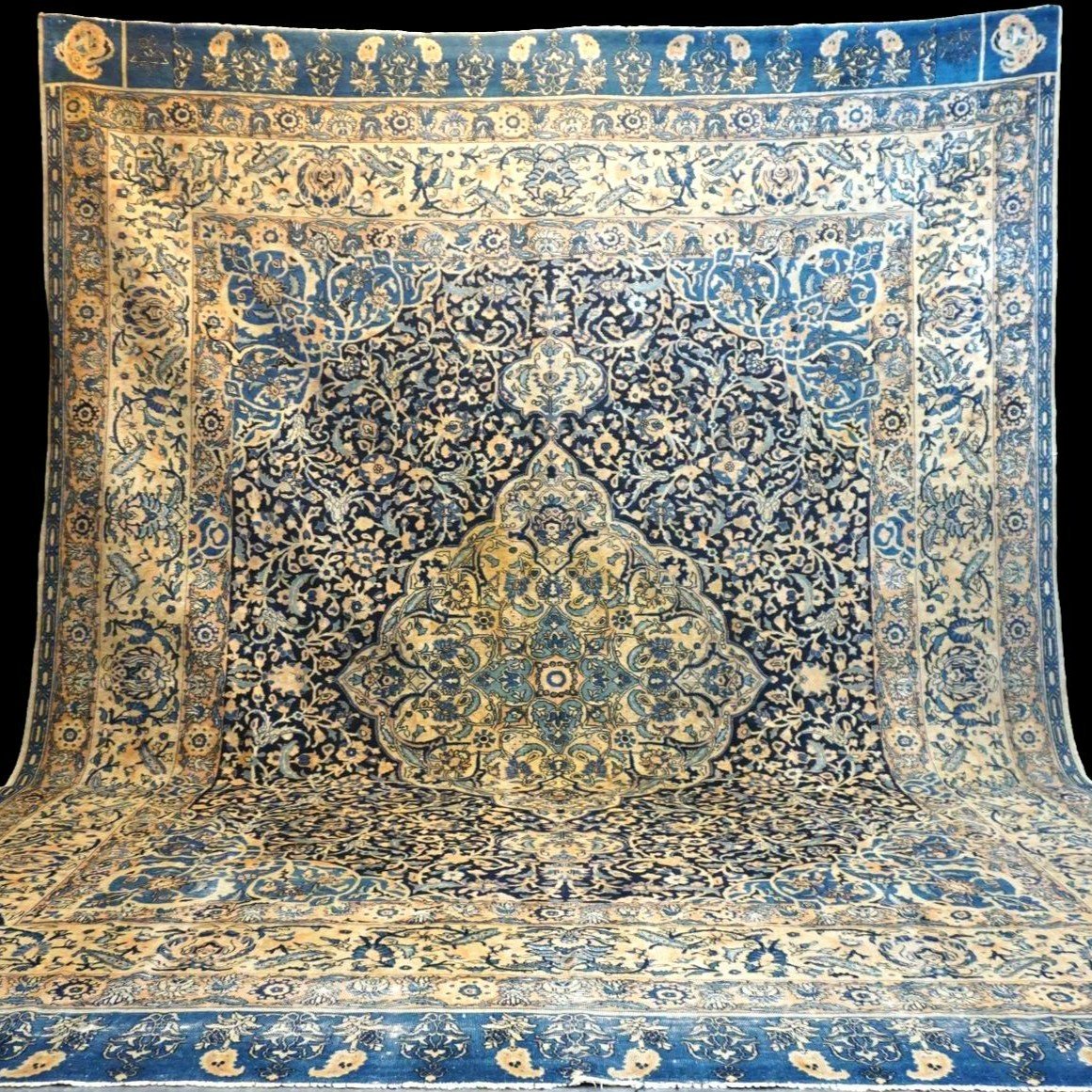

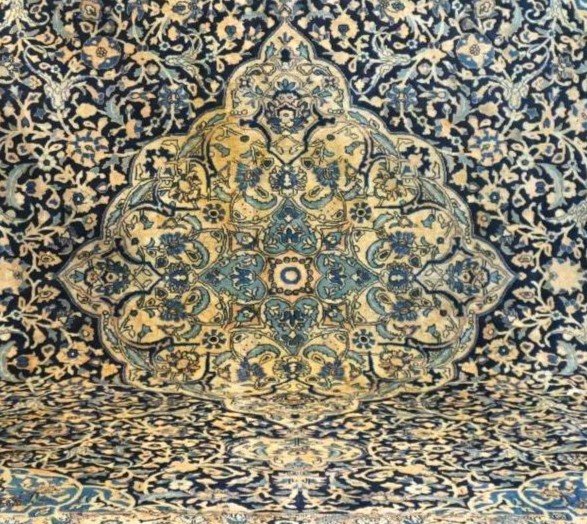
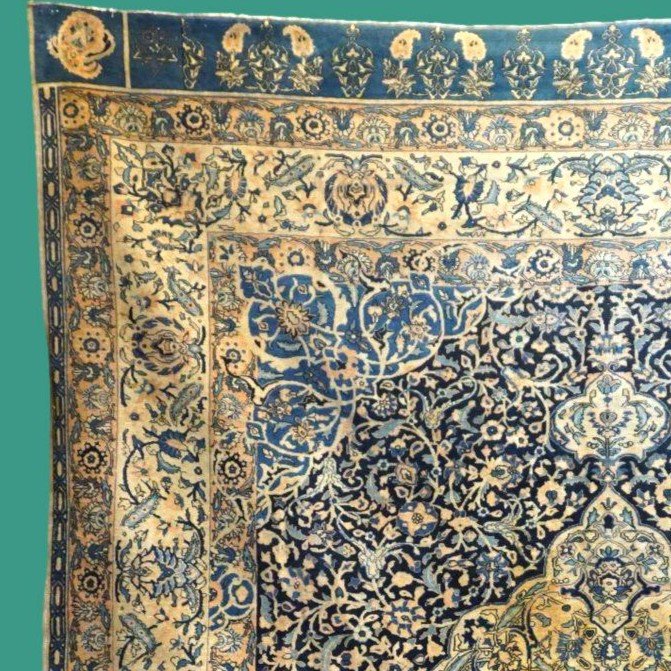
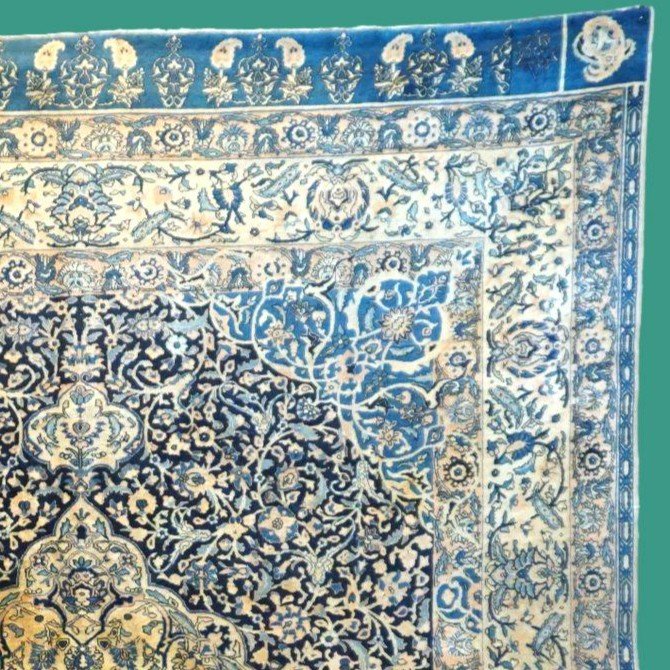
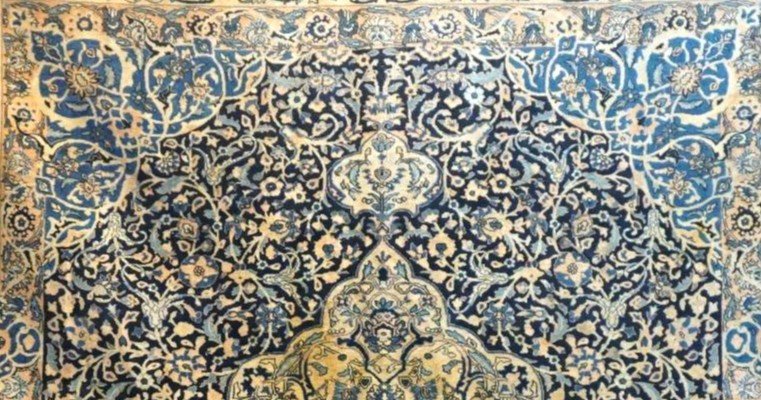
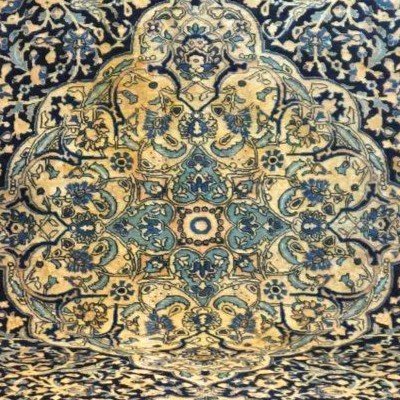
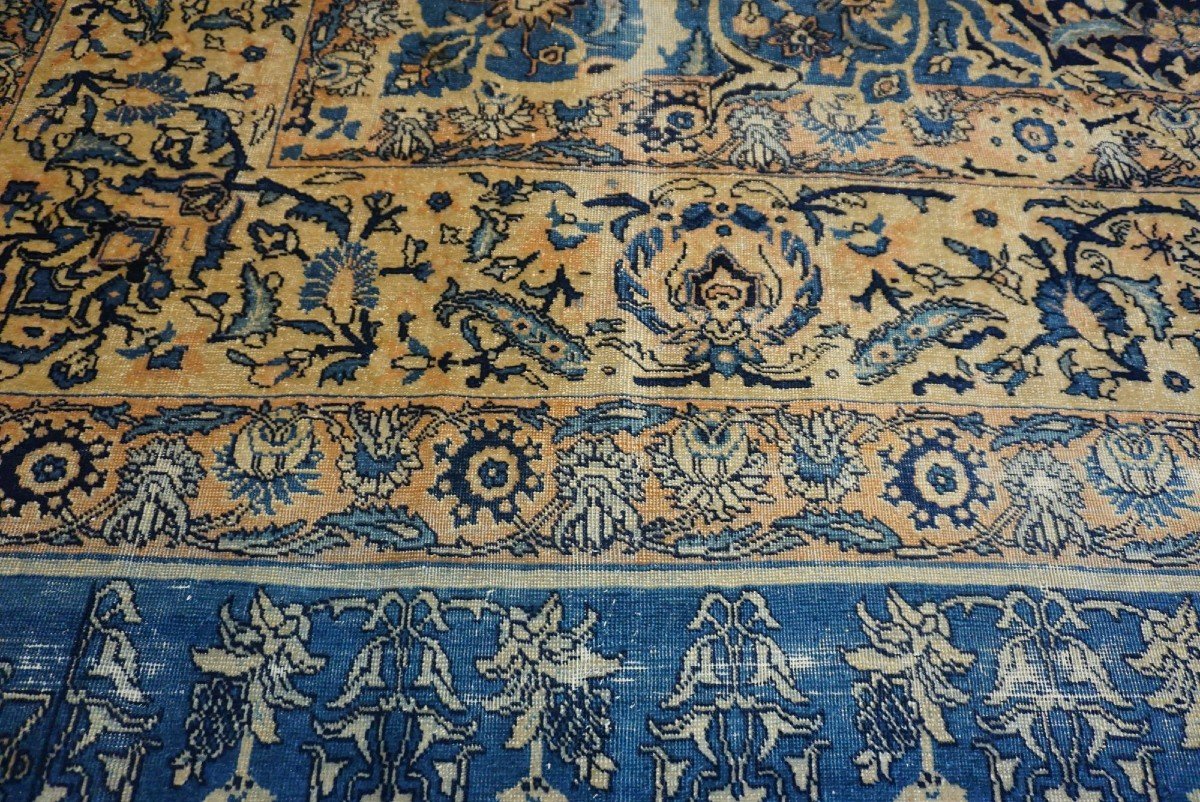

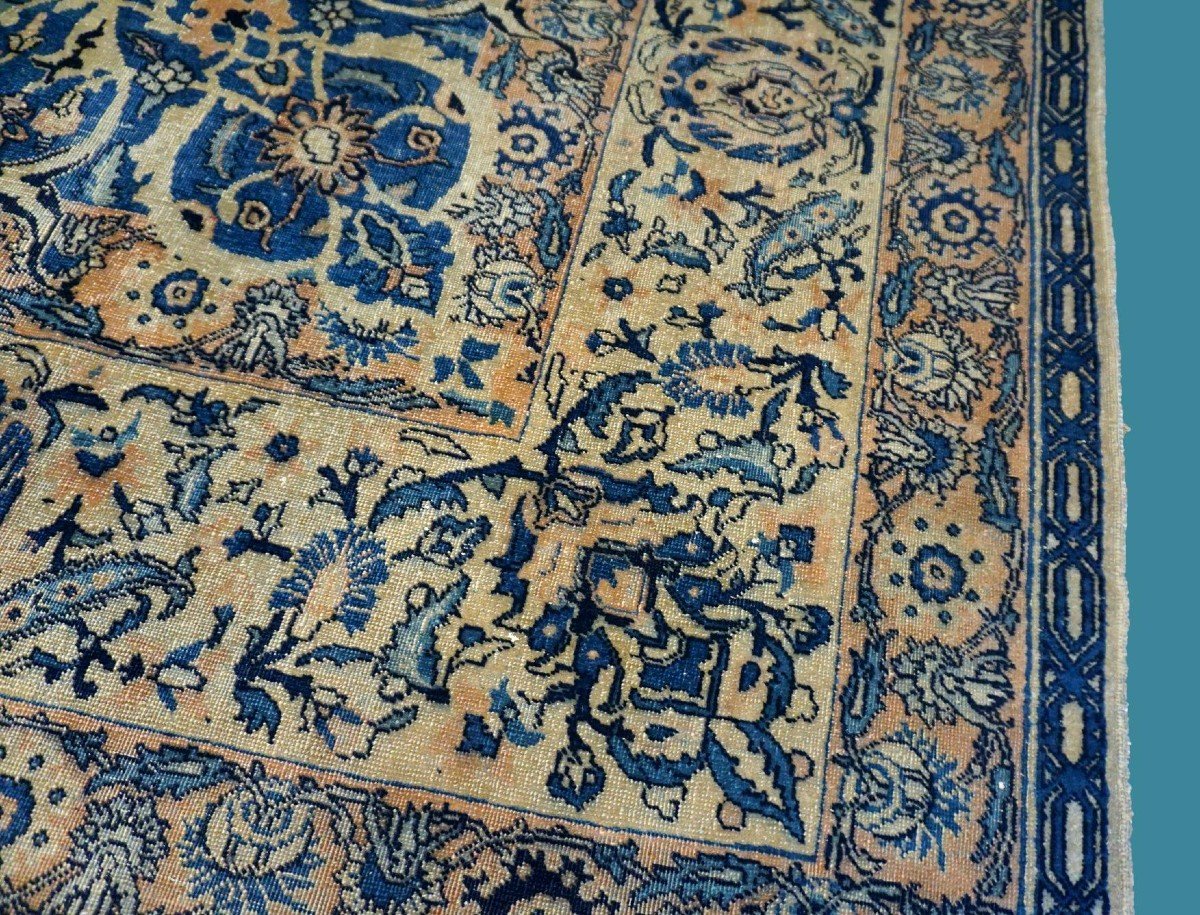
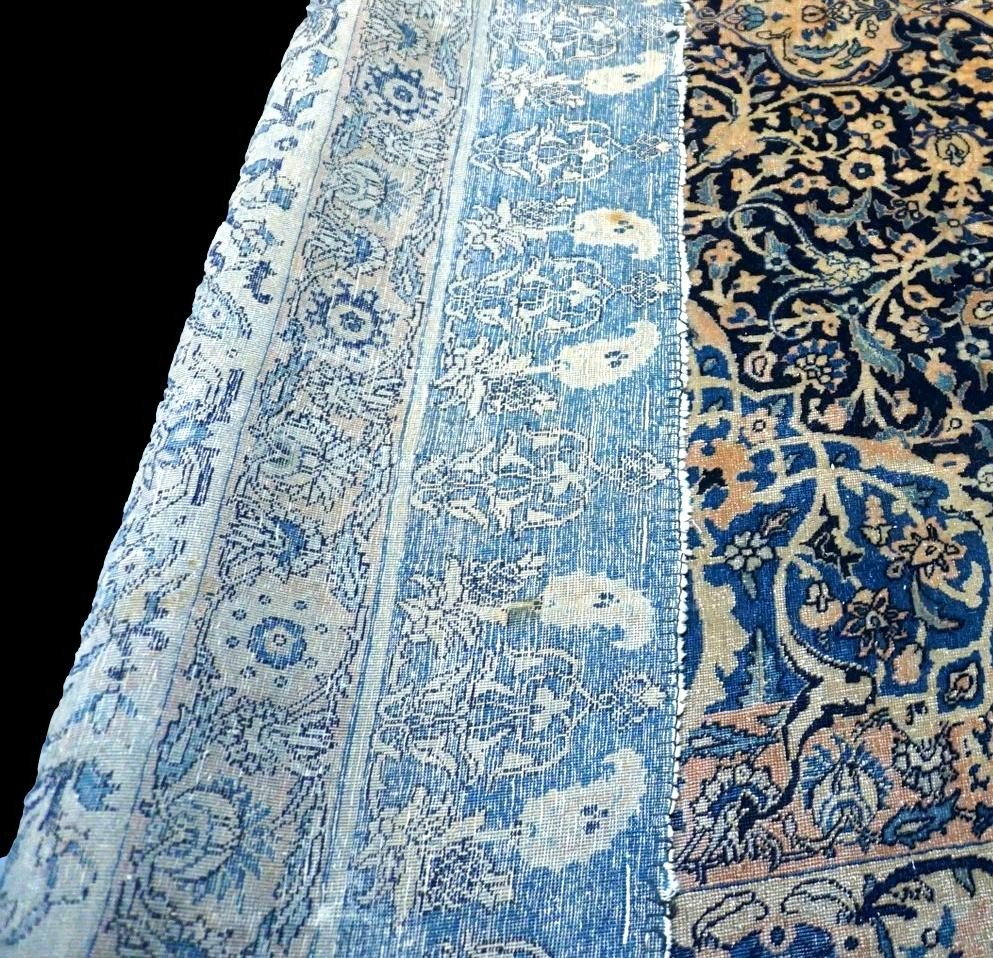
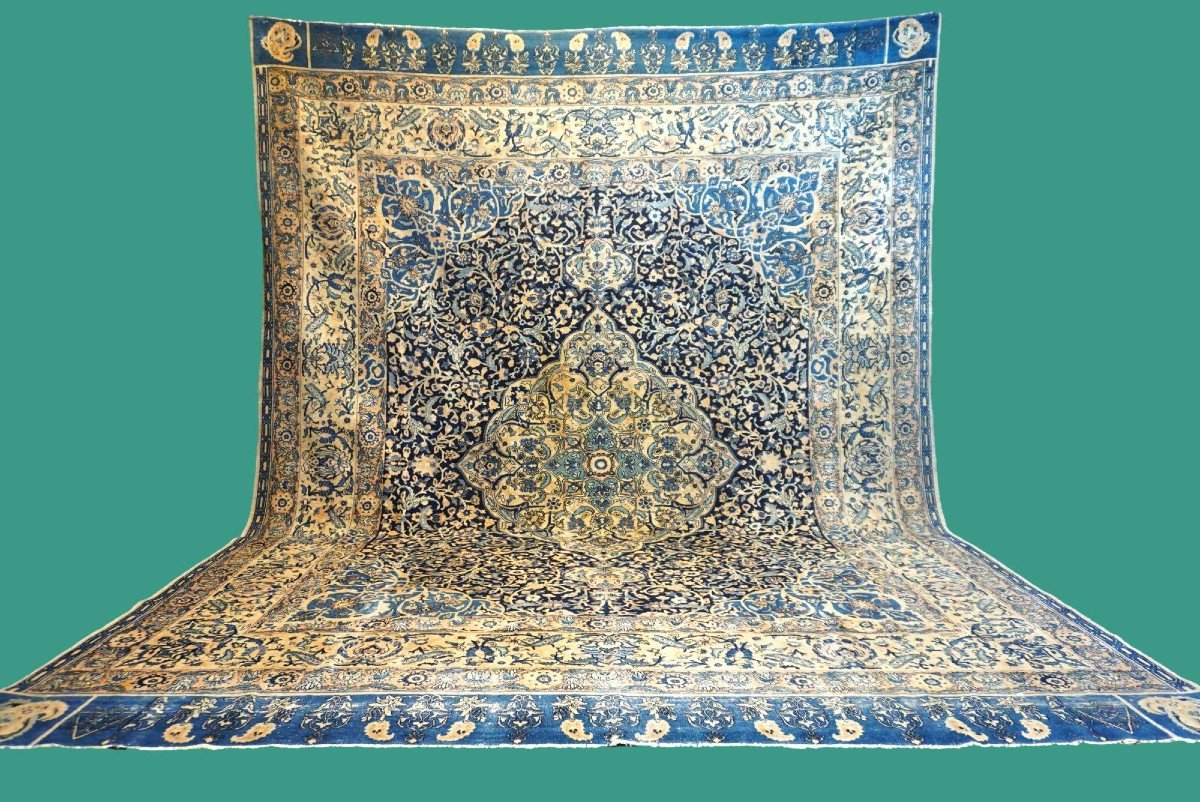













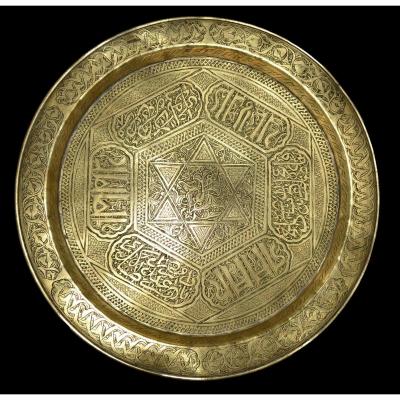
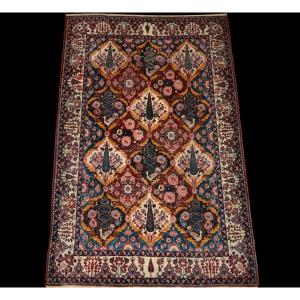






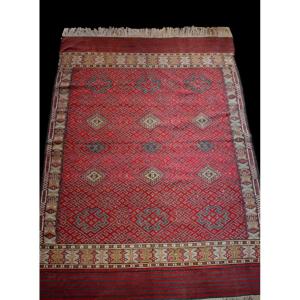

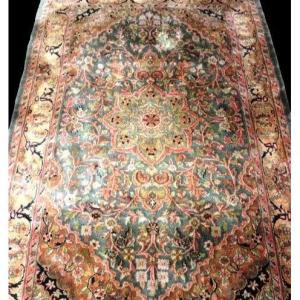




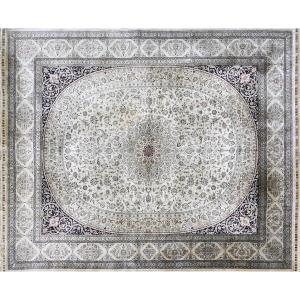

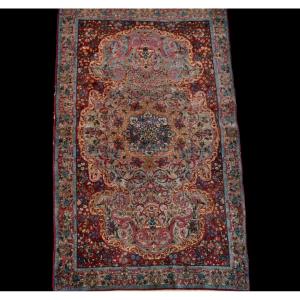
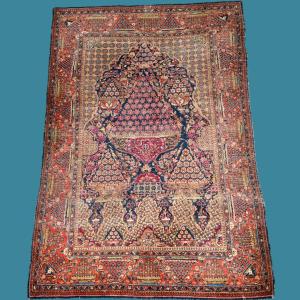




 Le Magazine de PROANTIC
Le Magazine de PROANTIC TRÉSORS Magazine
TRÉSORS Magazine Rivista Artiquariato
Rivista Artiquariato